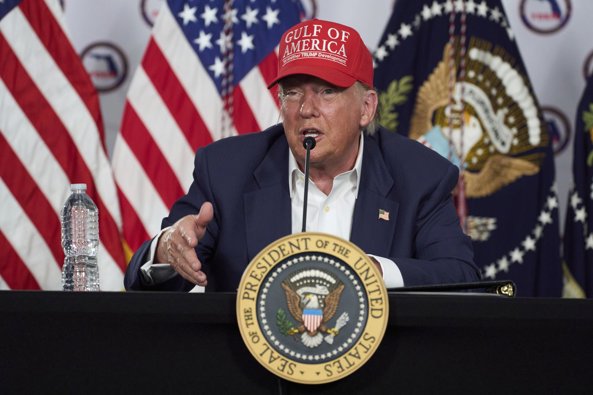
Trump’s $3.3T Bill Sets House Voting Record
President Trump’s $3.3 trillion agenda bill advanced after a record-breaking House vote and hours of fierce debate, marking a pivotal moment in the ongoing partisan struggle over tax and spending reforms.
Historic Voting Marathon on Trump’s Megabill
The U.S. House of Representatives has set a new record for the longest voting session in its history, as President Donald Trump’s $3.3 trillion “big, beautiful bill” cleared a crucial procedural hurdle overnight. The vote on the Senate-amended version of the sweeping agenda package lasted more than seven hours, surpassing the previous record set during the Biden administration’s “Build Back Better” vote.
The marathon session unfolded amid deep divisions and high drama on Capitol Hill. House Speaker Mike Johnson, R-La., faced intense pressure from conservative members of the House Freedom Caucus, who opposed provisions they argued would increase the federal deficit and weaken Medicaid reforms. Rep. Chip Roy, R-Texas, voiced frustration over the Senate’s inclusion of green energy tax credits, which the House had previously sought to eliminate.
With Democratic lawmakers united in opposition and a small group of Republican holdouts holding significant sway, passage of the more than 800-page legislation remained in doubt until early Thursday. Ultimately, Johnson’s negotiations prevailed, and lawmakers voted to proceed with debate in a closely watched “rule vote,” setting the stage for a final decision later in the day.
Delays and Partisan Maneuvering as Deadline Looms
Progress stalled as House Minority Leader Hakeem Jeffries, D-N.Y., exercised his privilege as a party leader to speak for hours on the floor—a tactic known as the “magic minute.” Jeffries began his speech before dawn, reading from binders filled with stories of Americans who could lose Medicaid coverage under the bill. He decried the measure as “one big, ugly bill” that would “undermine quality of life” for millions while rewarding the wealthy with tax breaks.
Democrats, unable to block the bill outright due to the reconciliation process, relied on procedural delays to slow its progress. Their efforts followed tense negotiations, as five Republican members initially threatened to block the rule vote and some conservatives even considered skipping the vote in protest. Both Johnson and President Trump spent hours working to secure GOP unity.
Ultimately, the House adopted rules for debate in a dramatic 219-213 vote, with only moderate Rep. Brian Fitzpatrick, R-Pa., dissenting. The next step—a final House-wide vote on the bill—remained contingent on the duration of Jeffries’ speech and further procedural moves by Democrats.
The Senate had already passed its version of the legislation by a razor-thin 51-50 margin, with Vice President JD Vance casting the tie-breaking vote. The Senate’s amendments included modifications to Medicaid cost-sharing, new tax measures, and a $5 trillion increase to the debt ceiling, all designed to avert a looming credit default.
The bill features major policy changes, including permanent extension of income tax cuts from the 2017 Tax Cuts and Jobs Act, new deductions for tipped and overtime wages, and a deduction for people aged 65 and over. It rolls back green energy tax credits enacted under the previous administration, directs new funding toward national defense and immigration enforcement, and introduces stricter work requirements for Medicaid and food assistance programs.
Republicans have touted the bill as a boon for the working and middle classes, emphasizing tax relief and welfare reform. Democrats argue it is a windfall for the wealthy at the expense of vulnerable Americans, criticizing proposed cuts to federal benefits for children, veterans, and seniors.
President Trump, seeking to rally Republicans behind the bill, declared on social media, “It is everyone’s Bill. There is so much to be proud of, and EVERYONE got a major Policy WIN… The Biggest Winner of them all will be the American People.” He urged swift passage ahead of the Independence Day deadline, framing the legislation as crucial for “lower taxes, higher wages, secure borders, and a stronger military.”
As the legislative marathon continues, all eyes remain on the House floor, where the fate of President Trump’s landmark bill hangs on a delicate balance of partisan resolve, last-minute negotiations, and the procedural maneuvers of both parties.






